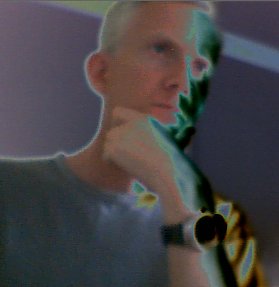We're almost ready to announce the writers for the project. There are a few administrative details to take care of, but I'm hoping we'll be able to reveal who's been selected soon. (We'd better be, because we need to start writing the characters on Monday!)
Several applicants for writers' positions on
The Whale in the Room probed me on the criteria for selection. I had to answer that there weren't any. Since nobody has attempted this kind of project before, I decided not to apply any traditional selection procedure, but to try to follow the Twitter spirit in selecting the writers.
Part of the joy of using Twitter at the moment is that the "rules" - or rather the etiquette, and habits, and subculture - of Twitter are emerging from its users. You don't need to go looking for Twitter for Dummies or to hire a "Twitter consultant". You just clamber aboard, and if you like what's going on, and you think it's for you, you join in. And, once you join in, you do your bit to change Twitterlife a little bit - to add your voice to the growing global conversation.
So, part of my approach to selecting the writers was simply to see how applicants used the medium: did they say interesting things, did they seem to want to entertain and engage with other people, did they look for new ways of expressing everyday things, did they delight us with their insights, did they seem interested in the flow of events and ideas taking place in their lives and in the online life we all share...
At the same time, I tried to figure out whether or not applicants could and would write. Amazingly, I'd say that everyone who applied could write. I suppose if you've self-selected into a project like this, you're going to be an interesting and competent writer. So I'm tremendously heartened that so many talented writers could come together and, in many cases, get talking with each other because of this project. What wonderful people!
The "would write" part is much harder to figure. My experience with voluntary, unpaid, loosely managed projects is that it's easy enough to get people to say "Yeah, sure, I'll help out", but harder to get them to show up on the day. They don't really see your project as real, so they don't really feel like they're letting you down when they don't really turn up in real life to do any real work for real. I therefore had to try and make a judgement on whether or not applicants would step up to the task of tweeting in character over a period of two weeks - for the sheer love of doing it.
These are obviously rubbish criteria to use. Applying the first measure lets 99.99% of candidates through because only capable writers applied (plus a bot). Applying the second measure stops 100% of candidates because there's no reliable way of predicting future behaviour. In the end, then, I guess I'm guessing.
Scary, no? But, in the world of recruitment, after controlling for bias, most selection is done by answering just three questions: Can this person do the job? Will this person do the job? And: Will this person fit in? I guarantee that no matter how sophisticated the selection process, these three queries form its tripod. You can do the "can" question by setting aptitude tests or getting references. You can try to do the "will" question by asking candidates how they handled various situations in the past, and asking them about their goals for the future, and all that good stuff. The "fit in" question is possibly the most troublesome one, because it's the question that allows selectors to exercise their conscious or unconscious biases.
In the end, I'm going with my gut. And with the knowledge that everyone who applied could almost certainly co-write a script through Twitter. I hope that people who've become interested in the idea of Twitter-writing through this project will also think about launching their own collaborative projects. The Whale in the Room doesn't have to be the only game in town.
Finally, I'll mention that I've been sending my writing out for about 25 years now. This means that I could probably carpet the moon with rejection slips. Now, for the first time, I'm in the position of being a selector rather than an applicant. And it's clear to me that I'm not "rejecting" 170 people. I'm afraid there just aren't enough seats on the bus. But hey! There are other buses. And cars and cabs and trains and hovercraft and spacehoppers.
I give heartfelt thanks and writerly applause to everyone who's supported the project so far. I hope that, if you didn't get selected, you'll congratulate those who will tweet the play for us and cheer on their efforts. Stay with the action - and do listen to the play on Resonance FM when it's done. And keep tweeting.
